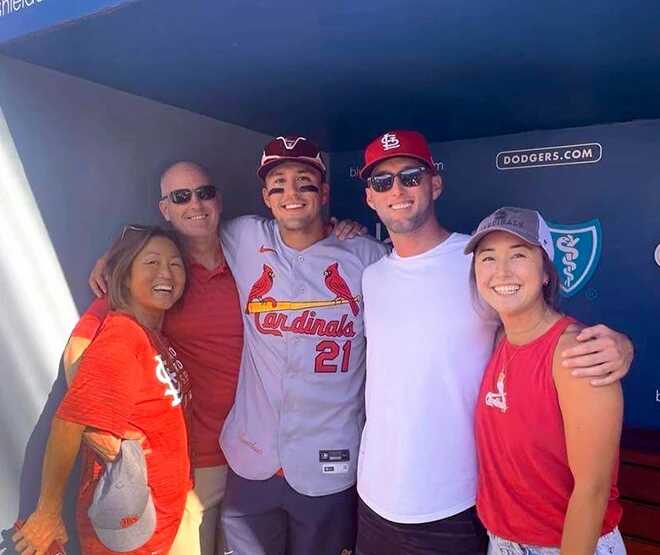Table of Contents
- Lars Nootbaar is For Real. Stop Worrying About Him. - Viva El Birdos
- Sad news; Lars Nootbaar announce his retirement because.... - Soccerairways
- Why did Lars Nootbaar play for Japan?
- Lars Nootbaar is having a great time in Japan - A Hunt and Peck - Viva ...
- Lars stars! From fan-favorite to Cardinals catalyst
- Lars Nootbaar sheds happy tears as his mother surprises him during an ...
- Lars Nootbaar Wikipedia, Salary, Instagram, Parents, Wife
- Cardinals fan favorite Lars Nootbaar fired up for 2023 season ...
- Lars Nootbaar's sliding catch
- Lars Nootbaar's Popularity Skyrocketed In March
/cdn.vox-cdn.com/uploads/chorus_image/image/72045127/1471605359.0.jpg)

For those unfamiliar with Nootbaar's background, he was born in El Segundo, California, to a Japanese mother and an American father. This mixed heritage has played a significant role in shaping his life and baseball career. Despite being born in the United States, Nootbaar has always felt a strong connection to his Japanese roots, thanks in large part to his mother's influence. He has spoken publicly about the importance of his Japanese heritage and the role it has played in his personal and professional development.

/cdn.vox-cdn.com/uploads/chorus_image/image/71952915/1432888218.0.jpg)
A Personal Connection to Japan


Moreover, Nootbaar's experience playing in Japan has also played a significant role in his decision. In 2021, he signed with the St. Louis Cardinals but was assigned to their minor league affiliate, the Memphis Redbirds. However, he eventually made his way to Japan, where he played for the Hokkaido Nippon-Ham Fighters in the Nippon Professional Baseball (NPB) league. This experience not only helped him develop as a player but also deepened his connection to Japanese culture and the baseball community.


Eligibility and the WBC Rules

The WBC rules also allow players to choose which country they want to represent, provided they meet the eligibility criteria. This flexibility has led to some interesting choices over the years, with players opting to represent countries that may not be their birth nation but hold significant cultural or familial importance to them.

A Symbol of Cultural Pride and Identity
Nootbaar's decision to play for Japan in the WBC is more than just a sporting choice; it's a celebration of his cultural heritage and a symbol of pride for the Japanese-American community. It highlights the complexities of identity and how individuals can maintain strong connections to multiple cultures and countries.As the WBC continues, fans will be watching Nootbaar and the Japanese team with great interest. Regardless of the outcome, Nootbaar's story serves as a powerful reminder of the importance of cultural heritage and the role that sports can play in bridging gaps between nations and communities.
In conclusion, Lars Nootbaar's decision to play for Japan in the WBC is a testament to the power of cultural identity and the complexities of international sports allegiance. As we watch him take the field, we are reminded that sports have the ability to transcend borders and bring people together in celebration of our shared humanity. Note: This article is optimized for search engines with relevant keywords, meta descriptions, and header tags to improve its visibility and ranking. The content is engaging, informative, and provides valuable insights into the story behind Lars Nootbaar's decision to play for Japan in the WBC.